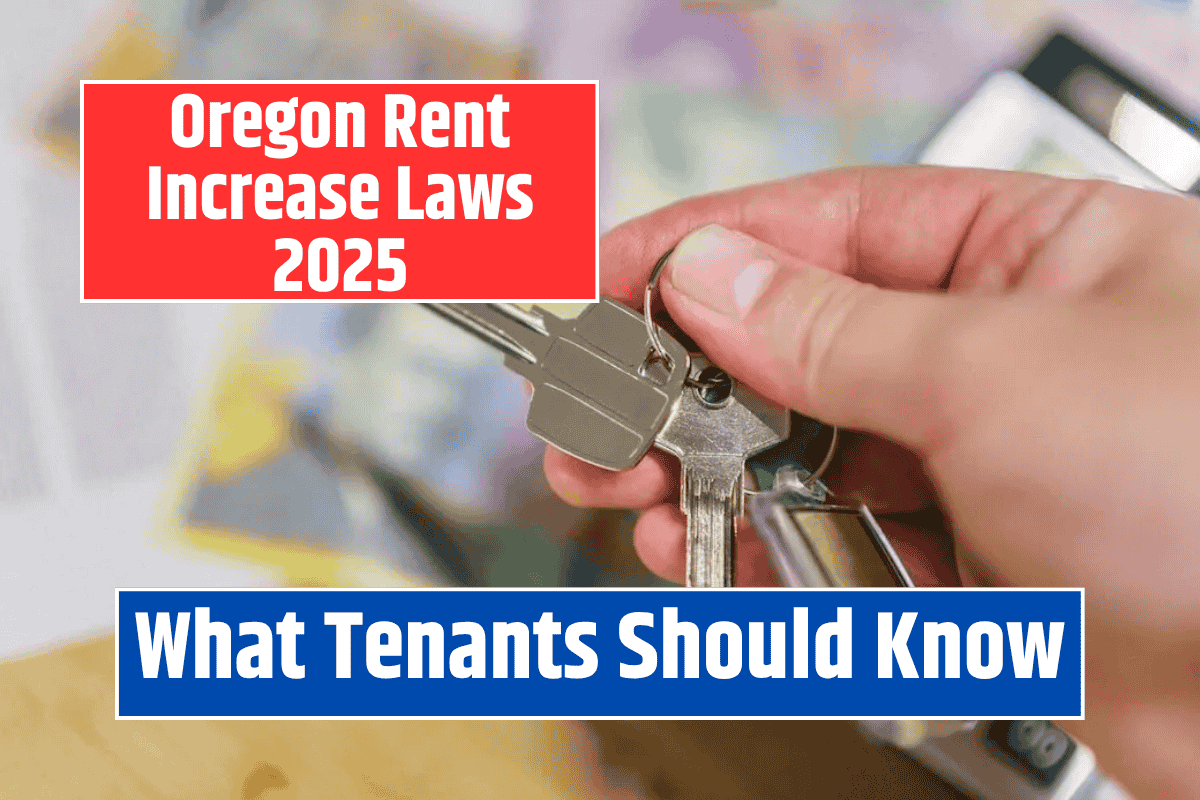Understanding your rights as a tenant is more important than ever in 2025, especially if you live in Oregon. Since 2019, Oregon has had statewide rent control laws in place, giving renters some level of protection against sudden and steep rent hikes.
These laws, introduced through Senate Bill 608 (SB 608), limit how much rent can go up each year and restrict when and why landlords can evict tenants. This guide explains Oregon’s current rent increase laws, notice periods, eviction rules, and how they differ from other states like California.
What Is Oregon’s Rent Control Law?
Oregon made history in 2019 by passing Senate Bill 608, the first statewide rent control law in the U.S. This law applies to most rental properties in Oregon that are 15 years or older. It places a cap on annual rent increases and sets clear rules about evictions.
The main features include:
Annual rent increase capped at 7% plus inflation
Written notice required before any increase
No-cause evictions banned after the first year
Oregon’s Rent Increase Caps
Each year, landlords in Oregon can raise rent by a maximum of 7% plus the annual inflation rate (measured by the Consumer Price Index for the West Region). So if inflation is 3%, the maximum rent hike allowed would be 10%.
However, not all properties are affected by this cap. These properties are exempt:
Rentals built within the last 15 years
Units with major renovations or upgrades
Properties owned by landlords with only two rental units
These rules aim to protect long-term tenants while still encouraging new construction and property improvements.
Notice Rules for Rent Increases
Oregon law requires landlords to give written notice before raising the rent:
90-day notice for rent increases up to 10%
180-day notice for increases above 10%
The notice must include:
The new rent amount
The effective date
Contact details for the landlord or property manager
If a landlord fails to provide proper notice, tenants can refuse to pay the increased amount until a valid notice is received. Landlords may also face penalties of up to 3 months’ rent plus any actual damages.
Rent Control Exceptions
While most rental units fall under Oregon’s rent control law, here are some cases where it doesn’t apply:
Newer properties (built within the last 15 years)
Major renovations recently completed
Small-scale landlords owning only two single-family rentals or condos
Additionally, subsidized housing (like Section 8 or tax-credit housing) follows federal or local rules instead of state rent control. In these cases, rent increases are usually capped at 1-3% annually, and tenants must receive 60 days’ notice.
Portland’s Stricter Rent Rules
If you live in Portland, you have extra protections. Portland’s local rules often go beyond the statewide law:
Rent increases are generally capped at 5% plus inflation
Any increase above 5% must have a valid reason, like higher operating costs or capital improvements
Landlords must give 90-day notice for increases up to 10%, and 180-day notice for more than 10%
Portland tenants can challenge rent hikes they believe are unfair, especially if the landlord cannot justify them.
Eviction Protections in Oregon
One of the biggest changes brought by SB 608 is protection against no-cause evictions:
During the first year of tenancy: Landlords can still terminate a lease without giving a reason, but must give 30–60 days’ notice.
After one year: Landlords can only end the tenancy for specific qualifying reasons, such as:
Non-payment of rent
Lease violations
Criminal activity
The landlord or their family intends to move in
Landlords who evict a tenant without a valid reason after one year may face legal penalties, including up to 3 months’ rent plus damages.
What Happens If Landlords Break the Law?
If a landlord raises rent above the legal limit or evicts a tenant without following the rules, they can be taken to court. Tenants may be able to:
Sue for up to 3 times the illegal rent charged
Recover attorney fees and court costs
Collect up to 3 months’ rent in penalties
To protect yourself, keep copies of all rental agreements, notices, and communication with your landlord. Also, take photos of the condition of your unit in case of disputes.
Oregon vs California: How Rent Control Laws Differ
Oregon has a statewide system, while California lets cities and counties make their own rent rules. This means that in California, rent control can vary greatly depending on where you live.
For example:
Los Angeles and San Francisco often cap rent increases at 3-5%
Many smaller towns in California have no rent control at all
Oregon’s uniform law ensures more consistency statewide
Some argue that Oregon’s approach is fairer for renters, while critics say local control allows better responses to each area’s housing market.
Impact on the Oregon Housing Market
Supporters Say
Rent control helps slow down rent increases
It provides housing stability for families and seniors
It reduces the risk of displacement and homelessness
Critics Say
Rent control can discourage new construction
Landlords may not maintain or improve their properties
It doesn’t solve the supply shortage
Still, a 2021 report found that rent increases in Portland slowed by about 2.5% under rent control, showing some benefit to tenants.
Oregon’s rent control laws provide renters with important protections in 2025. While landlords still have the right to raise rent, they must follow clear rules, give proper notice, and stay within the capped increase limits. Tenants in cities like Portland enjoy even stronger protections.
Understanding your rights and keeping written records are the best ways to stay safe and informed. Renters should always read their lease carefully, ask questions, and speak up if they believe their landlord isn’t following the law.












